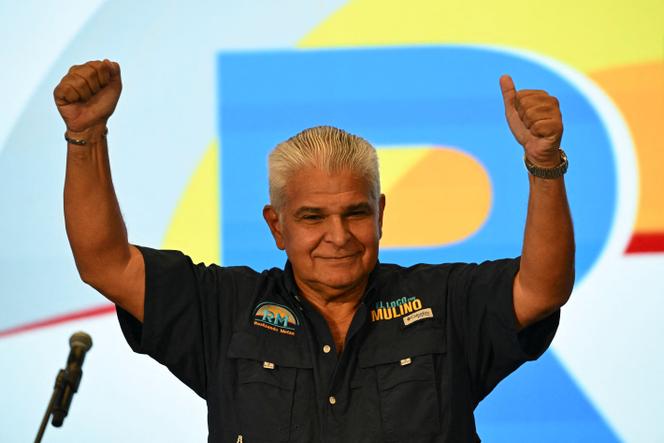


Panama's seventh presidential election since the restoration of democracy in 1990 was won by right-wing former minister José Raul Mulino, as the polls had predicted. In keeping with Panamanian tradition, he received a call from the Electoral Tribunal, broadcast live across all media, declaring him president until 2029, with a result of 34% of the vote, nine points ahead of his nearest rival. At the last minute, the 64-year-old lawyer had replaced former president Ricardo Martinelli (2009-2014), then the favorite in this election but sentenced by the courts.
"While Mulino's victory came as no surprise and confirmed Martinelli's popularity, this election was very surprising indeed," said Harry Brown Arauz, director of the International Center for Political and Social Studies (CIEPS) in Panama. First of all, it was surprising because of the predominant role played by the judiciary, making and unmaking candidates in the space of a few months, in decisions that were sometimes controversial. For example, former president Martinelli was eliminated from the race after the Supreme Court confirmed his 10-year prison sentence for money laundering on February 2, the day before the campaign began.
Taking refuge at the Nicaraguan embassy since that date, Martinelli was nevertheless able to designate Mulino, his running mate for vice president, as his successor. His party even obtained from the electoral courts the right to use his image on Mulino's campaign materials. He regularly made video appearances at his successor's rallies, presenting himself as "persecuted" each time, without the courts seeing any harm in that.
The legality of Mulino's candidacy was not confirmed by the Supreme Court until Friday, May 3, two days before the election. The Court's president, Maria Eugenia Lopez, acknowledged that in their decision, the justices had taken into account "the defense of our country and democracy as well as institutionality, social peace, the right to elect and to be elected [and] political pluralism (...)" rather than a strict reading of the Constitution.
The unprecedented nature of this election, which also included races for members of the National Assembly and mayors, is also due to the fact that the traditional Panamanian parties that have alternated in power since 1990 were not the main ones at play: The Democratic Revolutionary Party (PRD) of outgoing president Laurentino Cortizo only obtained 5% of the vote, while the Panameñista Party did not field a presidential candidate. "The political spectrum today is very fragmented, as the next National Assembly will undoubtedly be," said Brown Arauz.
You have 42.73% of this article left to read. The rest is for subscribers only.
